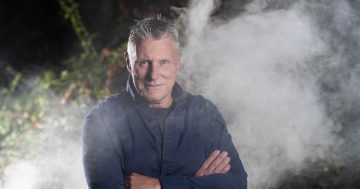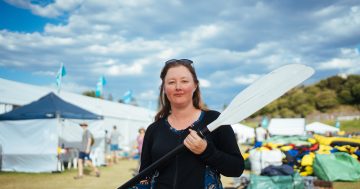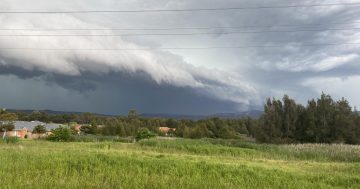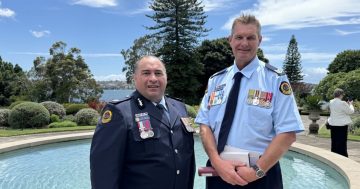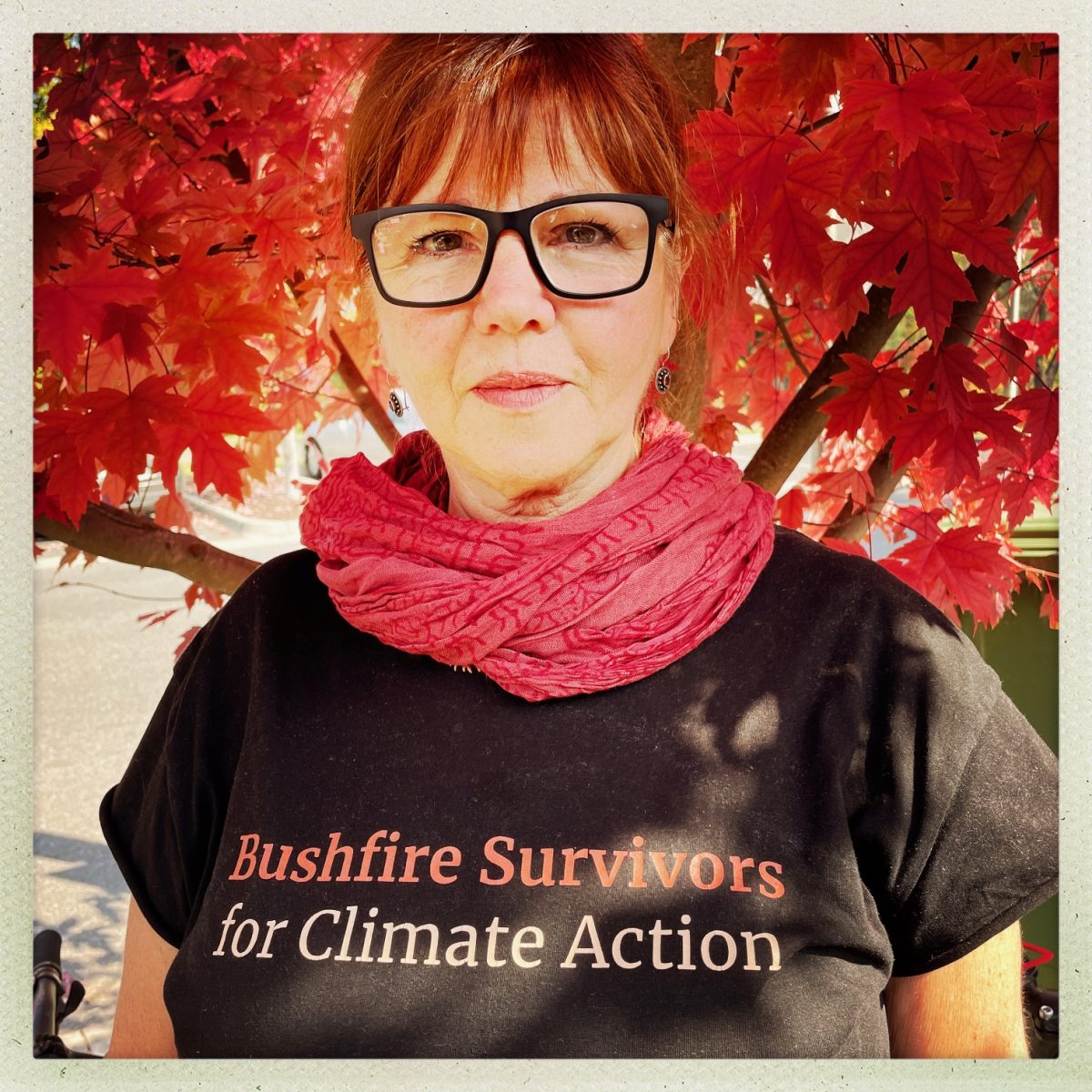
Jo Dodds, founding member and president of Bushfire Survivors for Climate Action. Photo: Supplied.
Last week, in southern, coastal NSW, we experienced the hottest winter’s day I have ever felt.
Even now, a blistering, swirling wind is tearing leaves and branches from trees and stripping moisture from everything. It’s not even noon and my phone is pinging with alerts about fires in eight locations nearby. It’s also pinging with messages from friends who are as perturbed by this day as I am.
My household has done what we can to protect our home. We’ve invested in a dedicated firefighting unit with a mobile pump, hoses and water carrier. We’ve managed all nearby vegetation. Our gutters are clean and our tanks are full. None of this earns us a discount on our home insurance, however, which has risen by more than 100 per cent in just two years. That’s right, it’s DOUBLED.
And the risk of my home and thousands more burning down is escalating every single day. Today, in winter, could be that day.
While I watch the sky for smoke, I check the Hazards Near Me app and touch base with neighbours – several of whom are sitting in homes rebuilt since losing them in the Tathra District Fire of 2018 and the Black Summer bushfires. Like me, they’re anxious and they’re angry.
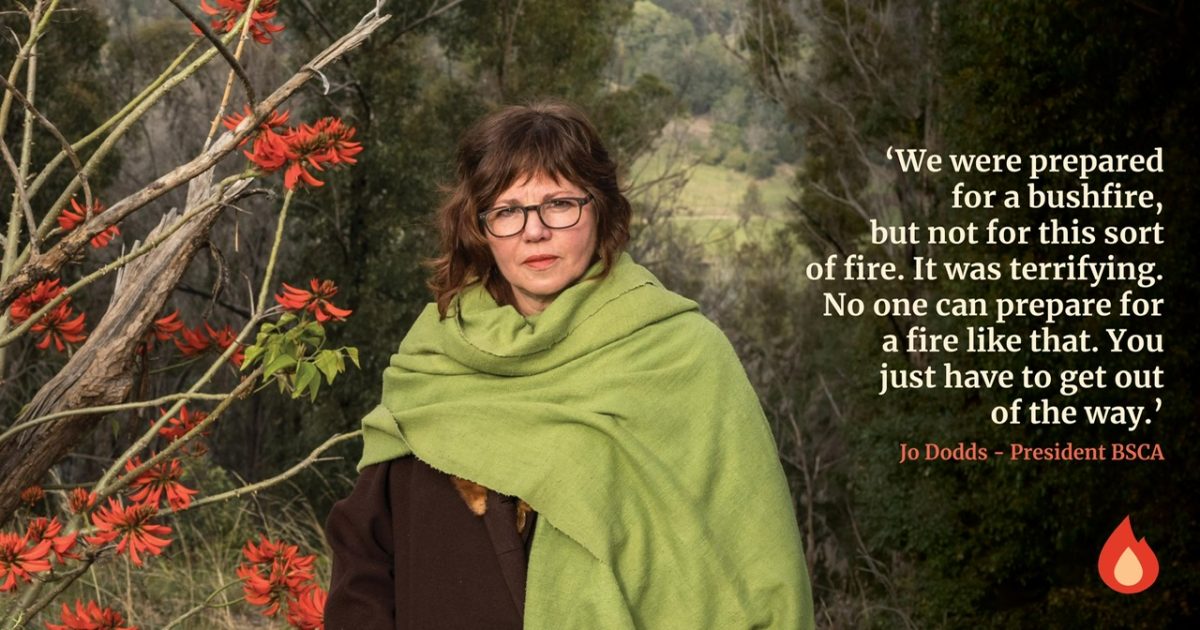
Jo Dodds was a Bega Valley Shire councillor during the 2018 bushfire in Tathra and the Black Summer bushfires. Photo: Supplied.
Like my home insurance bill, our distress around the threats of this particular day is doubled thanks to the catastrophic lack of action from our government to keep us safe. Because as fast as we work to secure our homes from climate damage, our Environment Minister keeps approving more fossil fuel projects. It’s a race that we, the people, are losing.
Here, in regional NSW, we are already stretched to breaking point. Regional economies are driven by the sweat and toil of regional people, and the thought of another season of bushfires, floods and storms, all driven faster, more frequent, more destructive by emissions from the fossil fuel sector, is more than we can take. If we are spending our time and energy preparing for, or fighting, or mopping up our losses after fires, we are not working – there’s zero income. Coal and gas mines, however, chug along unperturbed, making profits, contributing only more misery for us.
We tried fighting them in the courts and although we won a stronger NSW EPA, we lost against the megalith Whitehaven over its Narrabri coal mine expansion. We spent weeks, months, years meeting with our political representatives asking them to intervene and lower fossil fuel emissions. But we’re still to see legislation implemented to urgently lower overall carbon emissions let alone methane from the mining process itself.
Minister for the Environment Tanya Plibersek will consider approvals on the enormous Narrabri and Mount Pleasant coal mines within a couple of weeks. I hope my house is still standing by then, hers too. Either way, there will be thousands of us anxiously waiting for her decision, watching the horizon, and planning for the coming federal election.
Jo Dodds is a founding member and president of Bushfire Survivors for Climate Action. She was a member of Bega Valley Shire Council during the 2018 Tathra fire and the Black Summer bushfires. She didn’t lose her home but cannot count the number of friends who have lost theirs to climate-fuelled bushfires. She felt a duty to speak up about the causes of climate change after the Tathra bushfire because she says the science is indisputable. She is concerned not just for her generation but future generations who have no involvement in causing climate damage yet will be left with the result of our current decisions and actions. The group has around 1500 supporters across Queensland, NSW, Victoria and South Australia, plus the Netherlands and North America. You can email her at [email protected].
Original Article published by Jo Dodds on About Regional.









